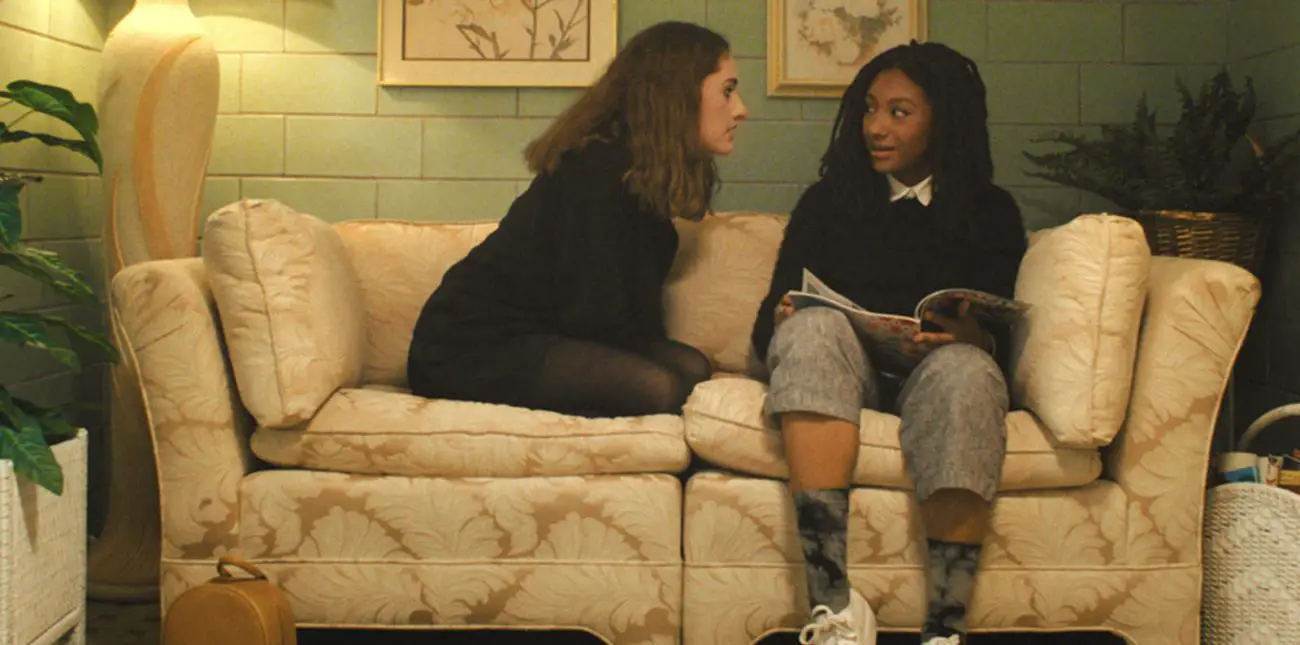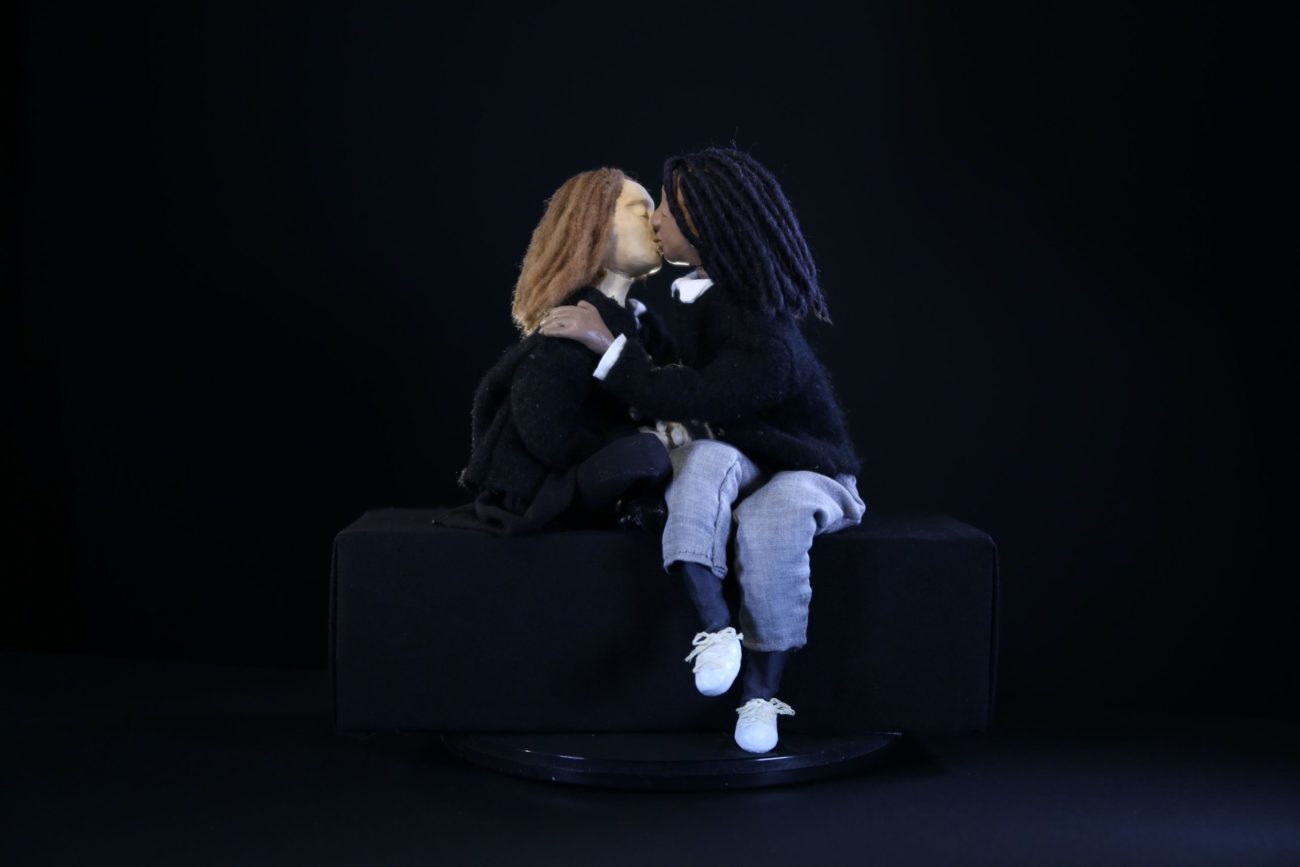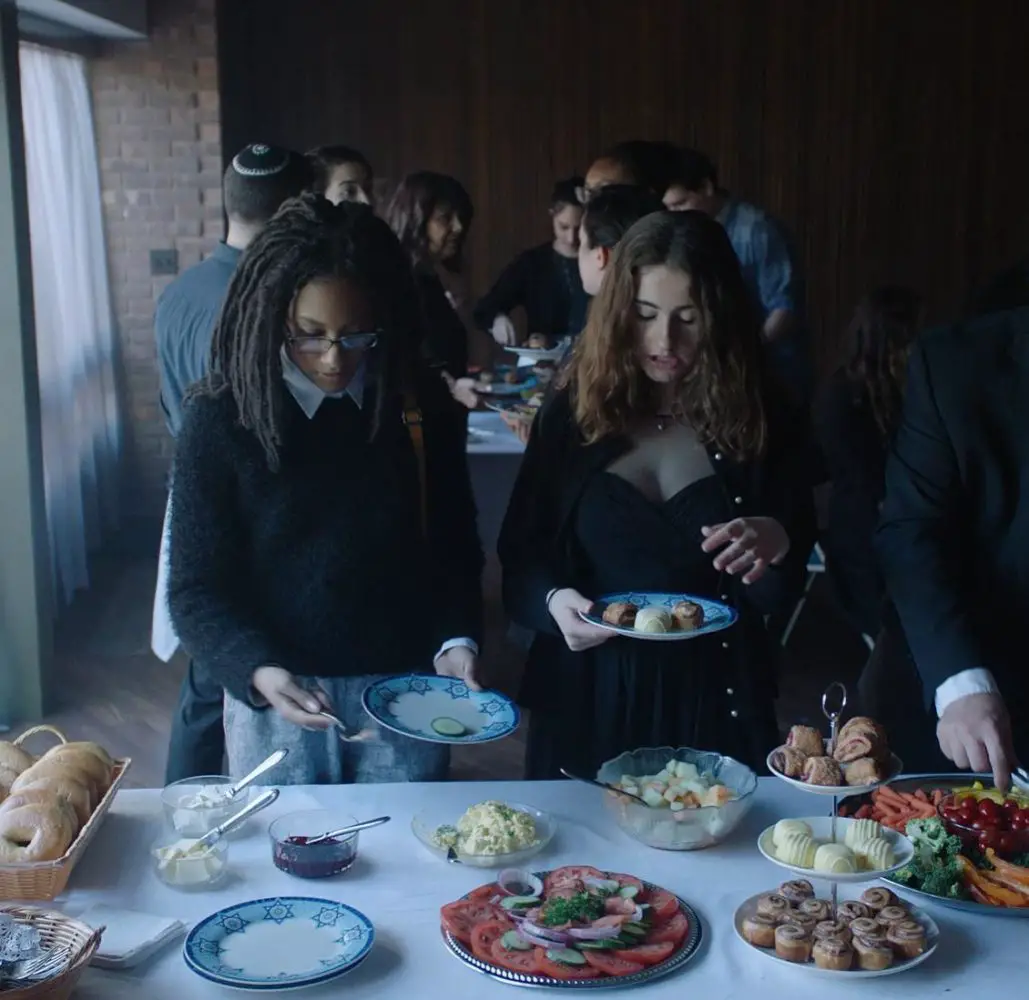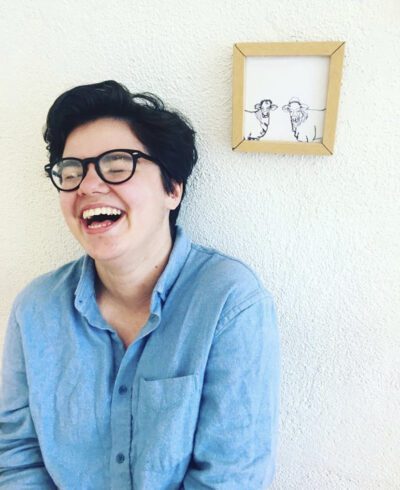Carrie (Madeline Grey DeFreece) and Hannah (Rachel Sennott) are the sort of inseparable best friends who are able to have full conversations without speaking. Tahara begins with the funeral of their former Hebrew school classmate, Samantha, who was known as a loner. The Hebrew school has put together a Teen Talk Back session for Carrie, Hannah, and the rest of their classmates to reminisce about Samantha and share their feelings of loss.
Hannah sees the day’s events as less about mourning and more as an opportunity for her to make her move on Tristan (Daniel Taveras). She laments to Carrie that she doesn’t know if she’s any good at kissing. Hannah asks if Carrie will help her practice kissing between the funeral and the Teen Talk Back session. The kiss proves to mean much more for Carrie than it does for Hannah. This shift in their dynamic sets the stage for the emotional upheaval that’s to come.

Although it could, the 1:1 ratio of the screen never fully feels claustrophobic. Instead, it creates a sense of intimacy between the audience and Carrie and Hannah. It heightens their silent conversations and the intensity of their friendship. When they kiss, the screen becomes larger, stretching to 16:9. When the kiss ends, the screen shrinks again. It’s a beautiful representation of growing up. So often, kids and teens are forced into situations that are not of their choosing. Their world feels very small and it seems like everything has already been decided for them. And then something happens, a kiss in this case, and the opportunities are endless. For one glorious moment, it’s a glimpse of what could be. A brand new world, so much bigger and wider than the world of high school.
Tahara director Olivia Peace’s vision is distinct. It effortlessly shifts between the reality of the world the girls live in and the way they wish things could be. Hannah’s crush on Tristan mostly plays out in animated fantasies that melt away as reality fades back in. The same goes for Carrie with her crush on Hannah. The animation allows for both Carrie and Hannah to exist in a daydream that distracts from the heaviness of the situation around them. Tahara is about the small moments in life that become irrevocable forks in the road. It’s easy to live within the daydreams, but when you’re forced to reckon with the reality of your actions, life becomes harder.

The film also focuses on grief, loss, and the way people process both of those emotions. How tradition and religion tell people how they need to grieve, but sometimes vaping in a bathroom and talking about the person who died is better than the traditional services. Tahara also looks at the way we judge how other people process a loss; that there is very much a “good” and “bad” way to act at memorial services. We don’t take into account that loss affects people in uneven, incomprehensible ways. Especially when it’s the loss of a young person.
The film also addresses the concept of proving one’s worth to another person. It’s evident in Carrie and Hannah’s friendship when Carrie decides to sit with Elaina (Shlomit Azoulay) in the Teen Talk Back session. Hannah asks to be excused to use the restroom and waits outside the classroom with a sneaky smile on her face. It’s a ruse she and Carrie have probably pulled many times to get out of class. Hannah waits almost gleefully for her friend to choose her again, but when she looks through the window in the door, she sees Carrie laughing with Elaina. Hannah may huff and say “whatever” before actually going to the bathroom, but it’s obvious that in her mind this was a test. A test to prove her worth to Carrie. A test Hannah failed.

So much of those high school years is spent worrying about fitting in, being accepted, and finding at least one friend so you don’t have to go it alone. Tahara’s focus on one day in the lives of these teens is a perfect microcosm of the fears they’re facing. The backdrop of the loss of their classmate, mixed with grander ideas of religion, identity, friendship, and sexuality, really accentuates how isolating it can feel to be a teenager.
Tahara is messy in the distinct way that teenage friendships are also messy. They’re confusing, codependent, and complicated. The movie doesn’t want to show perfection or an idealized look at being a teenager. Instead, it’s contradictory and honest, a combination that should be impossible. How can something be both honest and contradictory? It’s simple: that’s life.
There are many larger, more all-encompassing films about growing up. Some span years instead of Tahara’s mere hours, but few have been able to distill the teenage experience so accurately: the small, nightmarish miracle of finding your place in this world.



